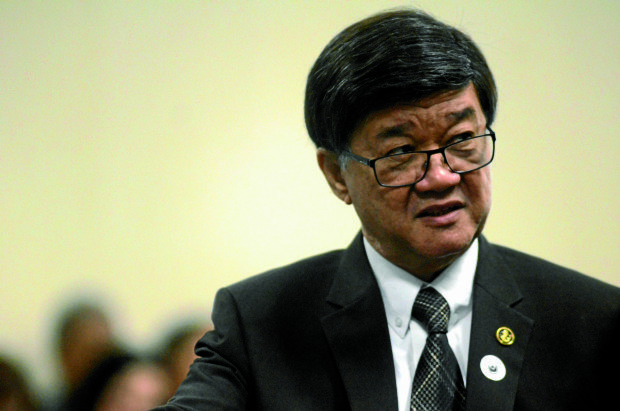Abolition of PCGG, OGCC opposed
Government lawyers opposed proposals in the House of Representatives to abolish the Presidential Commission on Good Government (PCGG) and the Office of the Government Corporate Counsel (OGCC).
Both Justice Secretary Vitaliano Aguirre II and Government Corporate Counsel Rudolf Philip Jurado opposed House Bills No. 5216 and No. 5233 seeking the abolition of the two agencies.
The bills contained the proposal of Solicitor General Jose C. Calida, seeking more powers for himself and reducing the powers of the Department of Justice (DOJ), OGCC and PCGG.
The bills seek to abolish the PCGG and OGCC and merge its functions under the Office of the Solicitor General (OSG) which will also become independent of the DOJ.
“We strongly object to these provisions. First, the provisions on the abolition of the OGCC and PCGG are considered a rider,” Aguirre said in a position paper submitted to the House.
Article continues after this advertisement“The Constitution provides that ‘every bill passed by the Congress shall embrace only one subject which shall be expressed in the title thereof.’ The Constitution does not allow the insertions of riders in legislation, a rider being a provision which is alien or not germane to the subject or purpose of the bill in which it is incorporated,” Aguirre’s position paper read.
Article continues after this advertisementMoreover, conflicts of interest may arise should the Solicitor General represent the government in a court case involving one of the government corporations represented by the OGCC.
“There are numerous cases wherein the OGCC and the OSG find themselves representing opposing sides with conflicting interests. The OGCC represents GOCCs (government-owned and controlled corporations) while the OSG represents different agencies of the governments,” Aguirre noted.
Aguirre said there was nothing wrong with the current setup and unnecessary changes might even cause, rather than solve, more problems.
“This department sees nothing wrong with the OSG, OGCC and PCGG existing independently of each other. In order to strengthen the OSG, there is no need to abolish the OGCC and the PCGG,” he added.
“It is our view that the OSG should continue to be an agency attached to the DOJ because the powers and functions of the OSG are devolved from [the DOJ’s] power,” Aguirre argued.
The justice secretary said transferring the OSG from the DOJ to the Office of the President would only “distort the powers and functions of [DOJ] secretary and the solicitor general.”
In his own position paper, Jurado said dissolving the agency was a “bane to sustained good corporate governance.”
The OGCC has been very instrumental in safeguarding the economic and financial interests of government corporations through litigation, Jurado said.
“Over the years, the OGCC has done its share in protecting the government’s multitrillion-peso assets and equities through its contextualized knowledge of the clients’ needs and its industry awareness,” Jurado said.
But Calida claimed that the functions of the OGCC could be absorbed by an Office of Legal Services, a new agency under the Solicitor General.
On May 24, Calida said in a House hearing the proposed abolition of the two agencies would result in a leaner bureaucracy. But he also sought more funds so he could acquire a new building to house additional lawyers and administrative personnel.
Calida noted several instances when GOCCs sought the OSG’s counsel instead of the OGCC, citing the cases involving GOCCs such as the Bases Conversion and Development Authority, Philippine Ports Authority, Philippine Economic Zone Authority and Manila International Airport Authority.
